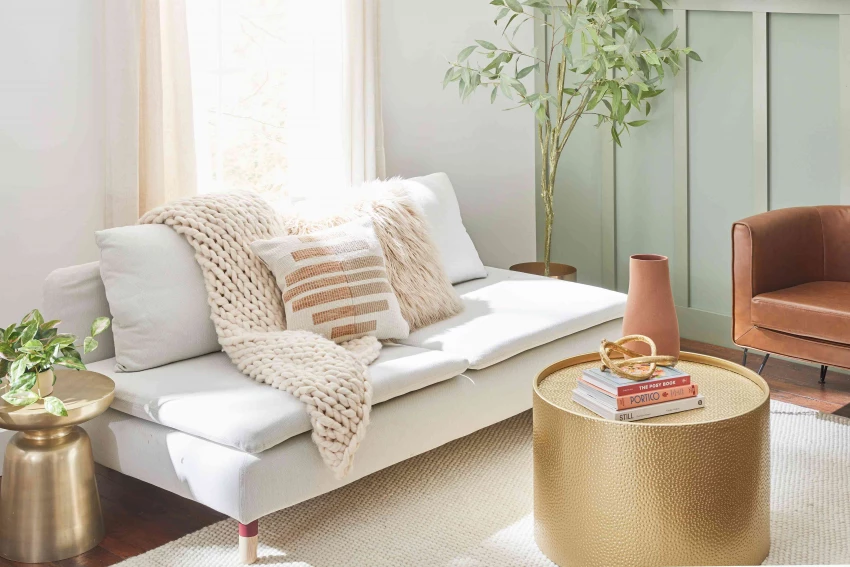

Sometimes we don’t notice it, but the way our home is set up plays a big part in how we feel every day. From how much light comes into your room to where your bed or desk is placed — it all adds up. A home’s layout can affect how well you sleep, how much you move, how stressed you feel, and even how you eat.
In this blog, we’ll cover the small layout choices that could be quietly shaping your daily habits and health.
Natural light plays a big role in how we feel during the day. If your home has small windows or blocked sunlight, you might notice you feel more tired or less motivated. Light helps your body stay in rhythm. It tells your brain when to wake up and when to rest. Without enough of it, you might feel sleepy during the day and wide awake at night, explains Maria Sin, Founder of Purebred Kitties.
Rooms that don’t get much sunlight can also make a space feel dull or gloomy. This can affect your energy and mood, especially during colder months. Even just opening curtains or using light-colored walls can help reflect more brightness indoors.

Good lighting also supports your sleep wellness, helping your body wind down at the right time. Letting in more sunlight during the day and keeping your evenings dim helps your body know when it's time to sleep.
When a room feels cramped, our minds can feel cramped too. Tight walkways, too much furniture, or things piling up can make it hard to move freely — and harder to think clearly. You might feel frustrated trying to get around or annoyed when things don’t have a proper place.
A crowded home can also add mental noise. It’s hard to feel calm in a messy space, especially if it’s where you spend most of your time. Over time, this can slowly build up stress without you even noticing it.
Opening up space doesn’t always mean getting rid of everything. It might just mean moving a few things around or putting away items you don’t use every day. Even clearing a small area can give your mind a break and help you feel more in control of your space.
Where your bedroom sits in the house — and what’s in it — can change how well you rest. If your bedroom is near a noisy road or shares a wall with the kitchen or bathroom, your sleep might be interrupted. Even little sounds can keep your brain alert and make it harder to fall into deep rest.
The setup inside matters too. TVs, laptops, or bright lights can keep your mind awake even when your body feels tired. These things confuse your body’s natural signals that it’s time to wind down.
To support better sleep, try keeping your bedroom as a calm, quiet space. Soft lighting, clean bedding, and less screen time all help. You can also use thick curtains or soft rugs to block out sound and light.
“The bedroom should feel like a sanctuary — not just look like one,” says Marissa Burrett, Lead Designer at Dream Sofa. “We often guide clients toward custom, ergonomically supportive sofas and headboards that soften both acoustics and energy in the room. The right furniture placement and materials can reduce distractions and promote deeper, more restorative sleep — because wellness starts with where and how you rest.”
Where your kitchen sits in your home can shape how and when you eat. If it’s right near the entrance or always in your sightline, it might tempt you to grab snacks more often — even when you’re not hungry. An open-plan kitchen that connects with the living area can make food feel “always there.”
This can quietly lead to mindless eating or late-night fridge visits, which may affect digestion, energy, and even sleep. If the kitchen is cluttered or poorly lit, it might also make cooking feel like a chore.
To fix this, you don’t need a remodel. Small layout changes, like closing a door, adding a curtain, or keeping snacks out of view, can help. A clean, calm kitchen layout also supports mindful eating—making healthy meals easier to prepare and enjoy.
A well-placed kitchen helps you build better food habits, which connect closely with your overall wellness.
When your home doesn’t have clear zones for work and rest, everything starts to blur. You might check emails in bed or scroll social media at the dining table. Over time, your brain stops linking certain spaces with certain actions—and that can mess with your focus and recovery.
If you work in your living room and relax in the same spot, your brain might stay in “alert” mode. This can lead to feeling tired but wired, where your body is still but your mind keeps racing.
Alex Vasylenko, Founder of Digital Business Card explains, “Having a clear space for work—even just a desk in the corner—and a separate spot to unwind helps your brain switch gears. This kind of layout also supports sleep wellness, because your mind starts to recognize the bedroom only as a place to rest.”
Even in small homes, using rugs, plants, or shelves to separate zones can help a lot.
A bathroom that’s far from your bedroom might sound small, but it can actually affect your nightly routine. If it's a hassle to reach, you’re more likely to skip that extra glass of water, face wash, or quick stretch before bed. Over time, this can weaken your habits—especially the healthy ones tied to winding down.
If the bathroom is too close to busy spaces, like the living room or kitchen, it can feel noisy or rushed. You might not feel relaxed enough to take your time, especially if others are around.
Good layout makes hygiene easy, not awkward. A quiet, easy-to-reach bathroom encourages better self-care and calm habits. It also helps set a better mood for sleep and recovery at night, says LJ Tabango, Founder & CEO of Leak Experts USA.
Making this space feel private and peaceful—even with a candle or soft light—can support both your well-being and sleep wellness without any big changes.
The way your home is set up matters more than we think. It can shape how you eat, how you sleep, how much you move, and how calm or stressed you feel. Even small things — like where your bed is, how much light comes in, or how open your rooms feel — can quietly affect your health every day.
You don’t need a big renovation to feel better. Just moving a few things around, clearing out busy corners, or setting clear zones for work and rest can make your space feel lighter and more peaceful.
Be the first to post comment!